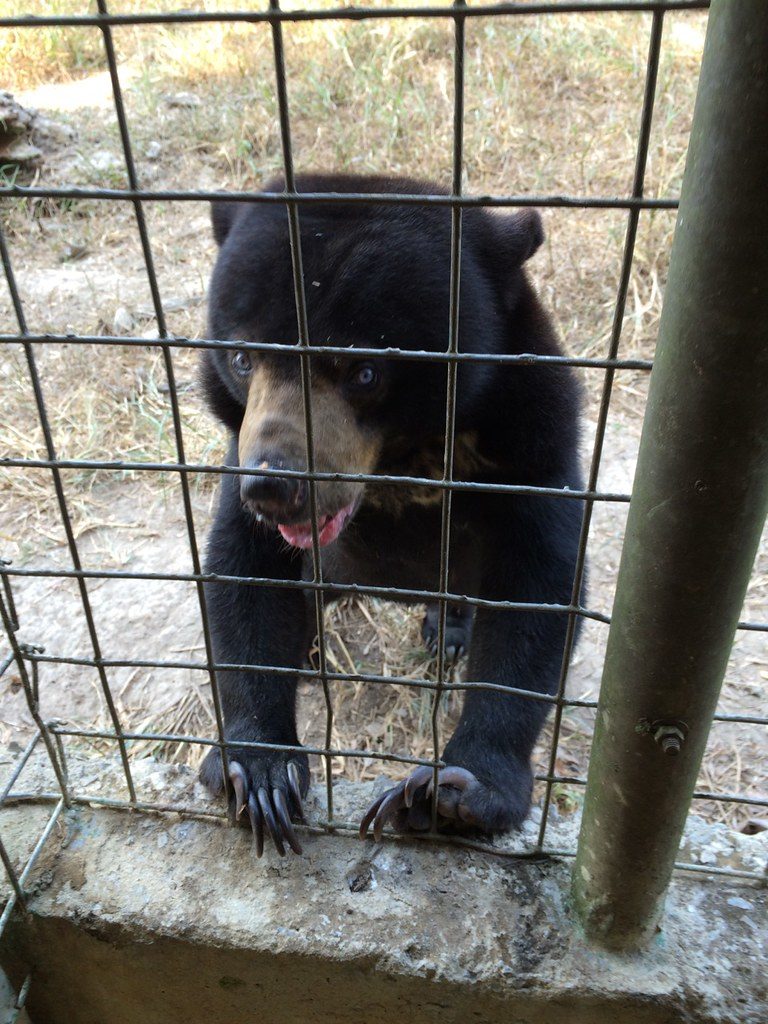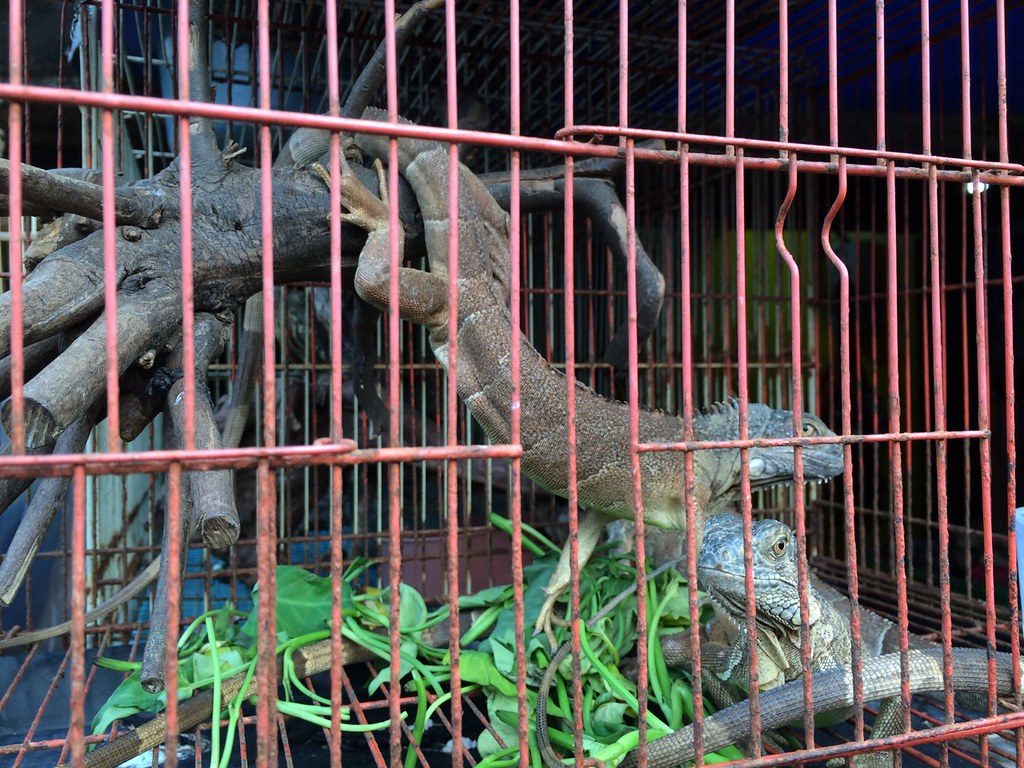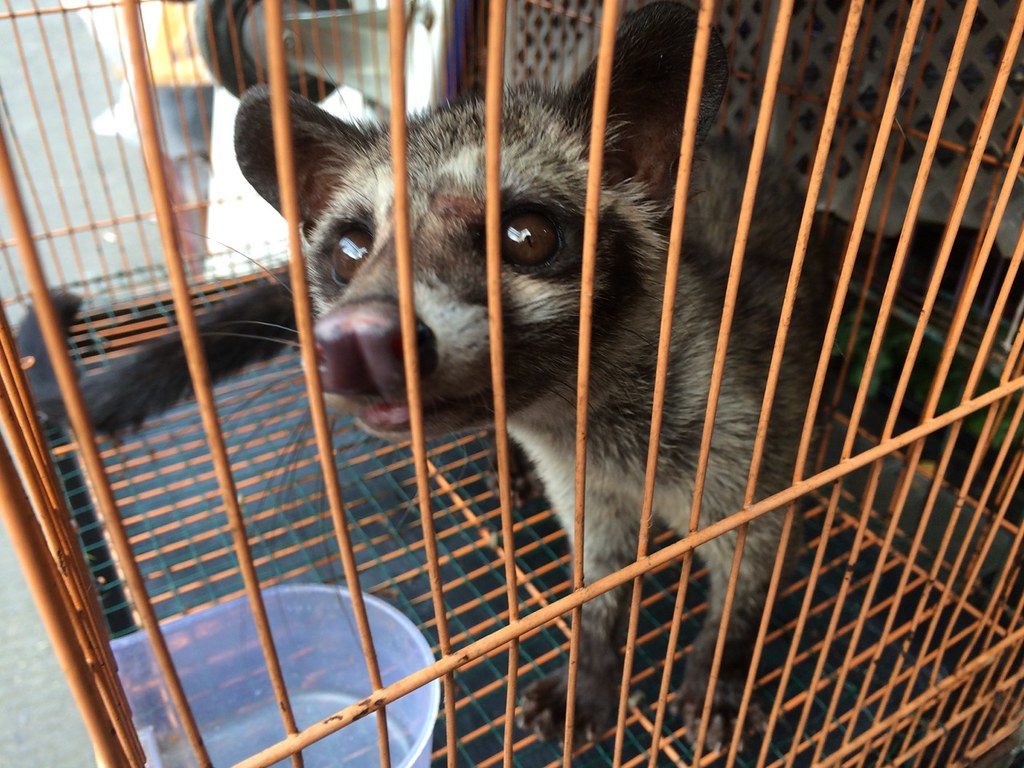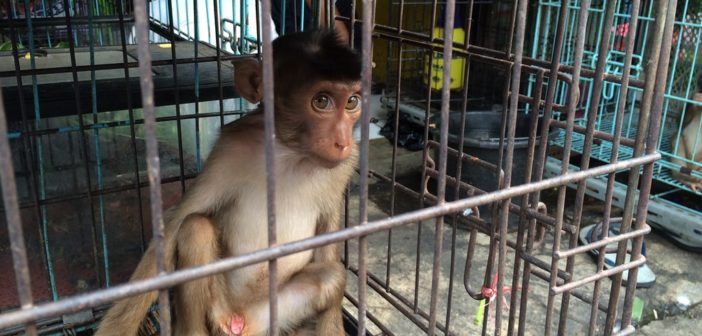There have been several incidents recently in Malaysia which have highlighted the disturbing trend of individuals keeping wildlife as pets.

A sun bear, the same species that a Malaysian singer was recently found to be keeping as a pet. Image credit Wolf Clifton – Animal People, Inc.
The media recently covered an incident where a sun bear was kept in a private residence without a permit by a Malaysian singer who claimed that she “thought it was a dog.” Within the same week, an endangered brahminy kite was found in a cage at a private residence. The protected bird had been illegally held captive for over a year in a home in the Malaysian state of Selangor. To the disappointment of Friends of the Earth Malaysia (FOEM), the official custodian of our nation’s wildlife, the Wildlife Department, had not responded to four previously-filed complaints about the caged bird.
Cases such as these are not uncommon. People are motivated to own an exotic pet by a variety of psychological factors. According to Dr. Michael Gumert, a psychology professor at Singapore’s Nanyang Technological University, these include a desire to gain the prestige that often comes from owning exotic wildlife, or simply a desire to be different from others through having an uncommon pet.
Obtaining exotic animals is easy and rarely results in penalties. The animals are usually removed from their habitat in the wild and kept in substandard conditions without proper care. Since most wild animals are difficult or impossible to care for properly in a home, many die prematurely or are abandoned. Selling protected wildlife in pet shops or on the internet is one of the largest sources of criminal earnings, following arms smuggling and drug trafficking. Popular animals are chinchillas, sugar gliders, iguanas, tortoises and turtles, various primates, iguanas and snakes.

Iguanas in a cage at Jatinegara Market in Jakarta, Indonesia. Image credit Wolf Clifton – Animal People, Inc.
FOEM’s growing list of concerns about exotic wildlife as pets includes:
- There is a well-known risk of disease transmission from wildlife to humans.
- A demand for endangered species contributes to the threat of extinction and causes major conservation problems in animals’ native habitats.
- Non-native released or escaped animals can negatively affect local wildlife and wreak havoc on ecosystems.
- There is a lack of education among the public regarding this issue.
- Regulation of the trade is lacking in most places.
We strongly oppose the keeping of exotic wildlife as pets and believe that all commercial trafficking of these animals should be prohibited. We also call for a ban on the sale of exotic animals and ongoing monitoring of all pet shops in Malaysia.

A civet in a cage at Jatinegara Market in Jakarta, Indonesia. Image credit Wolf Clifton – Animal People, Inc.
FOEM welcomes news of a proposed amendment to Malaysia’s Wildlife Conservation Act of 2010, banning online advertisements for the sale of endangered animals. High priority should be given to preventing this animal abuse and protecting wild ecosystems.
However, despite measures taken, the trade in captive wildlife will likely continue until people realize that wild animals are beings with their own interests and desires, not objects to be confined or owned. Until then, we hope the laws can help prevent these abuses and hopefully foster an understanding of the fact that animals exist for their own sake, not merely to be possessed or exploited.
Featured image: a baby macaque being sold in the pet trade at Jatinegara Market in Java, Indonesia. Image credit Wolf Clifton / Animal People, Inc.





